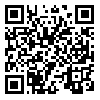Volume 1, Issue 1 (2009)
JHS 2009, 1(1): 167-191 |
Back to browse issues page
University of Tarbiat Modares
Abstract: (10364 Views)
This paper is focused on fuzzy theory of democracy. Here, it has been argued that the theory of democracy provides a two-valued description of political order (democratic or non democratic).However, this account of democracy is not consistent with the scientific truth. Democracy is characterized by fuzzy truth. Thus, following a critical discussion on the epistemology of critical rationality, a fuzzy epistemic apparatus has been formulated. Considering the fuzzy epistemology, it has been claimed that on this epistemic horizon, every thing is relatively calibrated and truth is something between zero and one. Also, in the mentioned apparatus, the black and white truth transforms into a gray truth and all follow the principle of uncertainty. Consequently, in the fuzzy epistemology, the membership function of zero and one will be generalized to a fuzzy membership based on a range of zero and one. To support the above mentioned epistemic apparatus, the writer of the paper has provided an empirical argument. The evidences the writer provides indicate that democracy as a truth represents values in the range of zero to one. The value of zero represents a completely non democratic country and the value of one represents a full democratic one. Any other value between zero to one is an indicator of a mixed category consisting of both democratic and non democratic aspects. Finally, based on the empirical evidences, it has been concluded that the U.S.A, England, Japan, Turkey, India, France, and Iran (1998-2003) are of democratic countries, albeit the kind and degree of democracies vary
Keywords: Epistemology, Epistemic apparatus of critical rationality, Fuzzy theory of democracy, Fuzzy logic, fuzzy membership function
Published: 2010/04/26
| Rights and permissions | |
 |
This work is licensed under a Creative Commons Attribution-NonCommercial 4.0 International License. |


